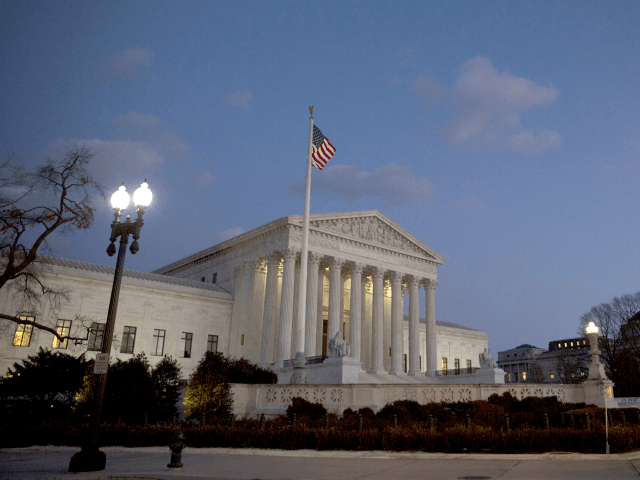A David vs. Goliath lawsuit on the constitutionality of the Consumer Financial Protection Bureau (CFPB) has reached the Supreme Court.
The plaintiffs in the case are a small Texas community bank, the State National Bank of Big Spring, joined by a small but highly effective Washington, D.C. think tank, the Competitive Enterprise Institute, and a senior advocacy group, 60 Plus Association.
The Goliath like defendant is the CFPB, the unaccountable and overreaching independent federal agency established in the 2010 Dodd-Frank Wall Street Reform and Consumer Protection Act, the brainchild of far left Sen. Elizabeth Warren (D-MA).
At issue is whether the CFPB is unconstitutional.
Last week, the plaintiffs filed a petition to hear their lawsuit, which asks the court to determine whether Title X of the Dodd-Frank Act that established the CFPB is constitutional.
The plaintiffs in the case are represented by high-powered Washington attorneys.
The case is being led both by former George H. W. Bush White House Counsel C. Boyden Gray and Gregory Jacob of O’Melveny & Meyers. Jacob is counsel of record.
The first question presented to the Court in the petition is:
Whether Title X of the Dodd-Frank Wall Street Reform and Consumer Protection Act violates the Constitution’s separation of powers by creating the Bureau of Consumer Financial Protection (“CFPB”) as an independent agency that exercises expansive executive authority over private citizens but is led by a single Director that the President cannot remove from office for policy reasons, is exempted from Congress’s power of the purse and accompanying congressional oversight, and has no internal checks or balances (such as those afforded by a deliberative multi-member commission structure) to mitigate this lack of accountability and restraint.
The petition also asks “Whether the Appropriations Clause, in conjunction with the constitution’s separation of powers, permits Congress to create perpetual, ondemand funding streams for executive agencies that are unreviewably drawn from the coffers of other independent agencies.”
A decision on whether the Court will hear the case is expected some time in November.
“Policy-wise, things have changed for the better at the bureau since we—along with the conservative seniors group 60 Plus Association and a small Texas bank called the State National Bank of Big Spring—first filed suit. In contrast to the first director, Acting Director Mick Mulvaney has insisted that the bureau not go beyond what it is authorized to do in the text of the Dodd-Frank statute that created it,” CEI Senior Fellow John Berlau wrote on the day the petition was filed:
Under Mulvaney’s predecessor, the bureau applied the law retroactively to penalize companies, posted significant rules on the Internet without required notice-and-comment from the public, and ignored the BCFP’s own data in pushing through regulations that could shutter certain businesses.
Mulvaney has worked to reverse some of these actions and ensure the BFCP adheres to the letter of the law. This even includes, as noted above, calling the bureau what it is officially entitled in Dodd-Frank—the “Bureau of Consumer Financial Protection,” rather than the CFPB.
President Trump has nominated Kathy Kraninger, a Mulvaney deputy at the Office of Management and Budget, which he continues to run while serving as acting director at the CFPB, to serve as the agency’s next director. The CFPB’s first director, far left Warren ally Richard Cordray, resigned in November and is currently the Democrat nominee for governor in Ohio.
Kraninger’s nomination was approved by the Senate Banking Committee on a straight party line vote. A vote on her confirmation is expected to be held by the full Senate some time this fall.
The CEI is one of several organizations that have endorsed Kraninger’s nomination.
“We still believe that Kraninger—or any other sole director of the bureau—must operate within constitutional constraints. These include the ability to be checked by presidential removal and by the congressional appropriations process. Currently the bureau receives funding automatically from the Federal Reserve, depriving Congress of the opportunity to exercise meaningful oversight through the budget process,” the CEI’s Berlau wrote.
“That is why we our pressing on with this important lawsuit,” Berlau concluded.
The case is State National Bank v. Mnuchin, No. 18-307 at the Supreme Court of the United States.

COMMENTS
Please let us know if you're having issues with commenting.